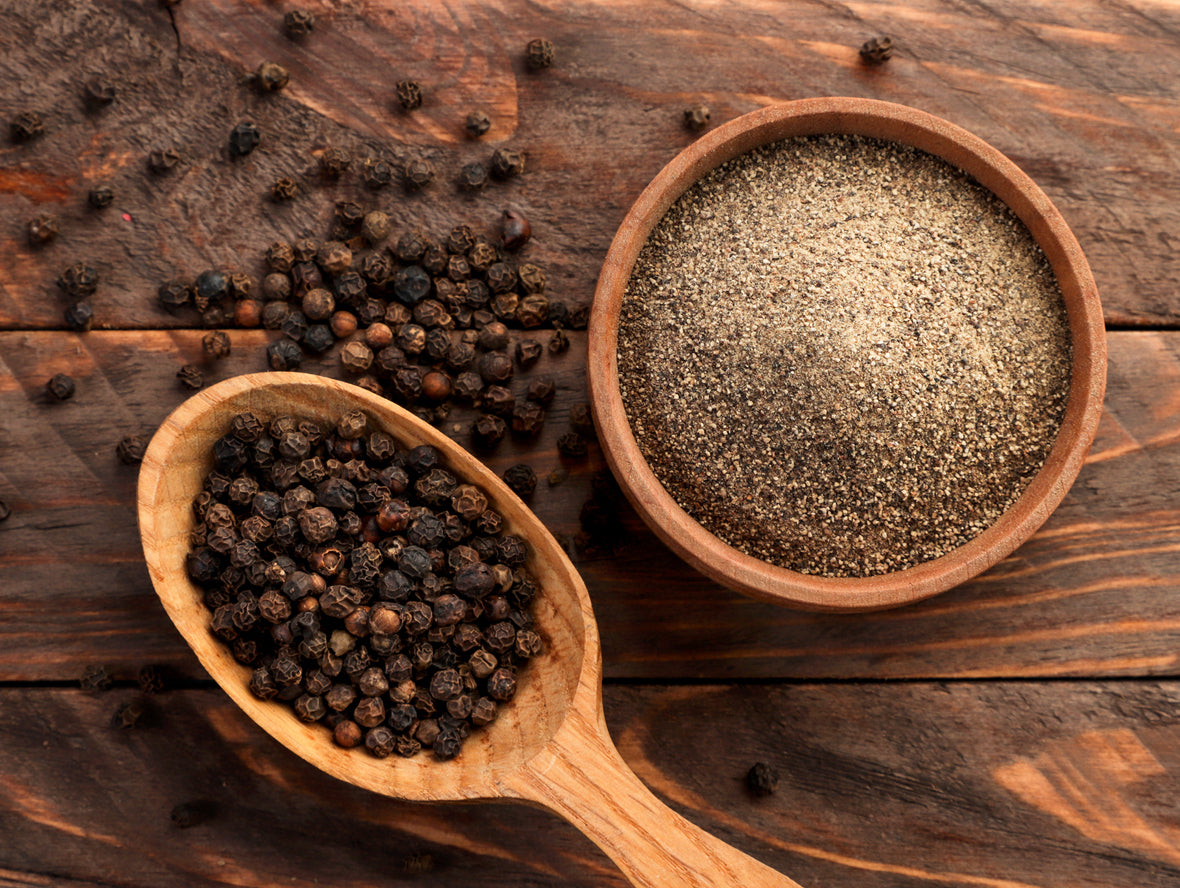4 unexpected benefits of black pepper

Whether your meal takes place in a neighborhood diner, a candlelit restaurant, or a cozy family kitchen, one thing is virtually certain: more than likely, the table setting will include shakers of salt and pepper. But this familiar pair of seasonings doesn't have to be an unbreakable "buddy act" - and probably shouldn't be.
When it comes to offering health benefits, nutritionists say that black pepper - botanically known as Piper nigrum - is a far better choice than salt, its long-time partner. So let's check out four great reasons to say, "Please pass the pepper!" (You might end up saying, "Hold the salt!" as well).
Black pepper may promote healthy weight
Scientists have long known that black pepper can promote healthy digestion - which it does by stimulating the production of bile and increasing the secretion of hydrochloric acid in the stomach.
Now, research suggests that pepper may promote weight loss. In a recent study published in Plant Foods and Human Nutrition, researchers found that piperine (the active ingredient in black pepper) reduced the absorption of fats and enhanced intestinal barrier function - two factors scientists say can help combat obesity and inflammation. By enlivening recipes with its zippy taste, pepper may make food more satisfying and flavorful - leading to more mindful eating and smaller servings. Clearly, pepper can be a great spice to support a weight loss journey.
Re-balance the gut microbiome with pepper
Pepper may also help restore a healthy balance in the gut microbiome. The gut microbiome is a community of bacteria in the intestinal tract that plays a vital role in controlling inflammation, boosting immune defense, and supporting metabolic health. In research published in Frontiers in Immunology, researchers found that a mix of pepper, ginger, ginseng, and maltose helped to restore populations of "friendly" lactic acid bacteria in the gut. The formulation also increased levels of inflammation-fighting immune cells in the colon, spurring hopes that it could play a role in treating inflammatory bowel disease (IBD).
Neuroprotective black pepper supports cognitive function and stable mood
Thanks to its high content of piperine, black pepper has antioxidant and anti-inflammatory effects. According to a recent review, this translates into an ability to help to protect brain cells, scavenge free radicals and prevent oxidative damage. In addition, black pepper may stimulate chemical pathways in the brain, helping to improve memory and cognitive function.
And according to some preliminary studies, piperine may even decrease deposits of amyloid plaques implicated in Alzheimer's disease. While more study is needed, it looks like black pepper may have the "right stuff" to help to preserve cognitive function in old age. By affecting the expression of neurotransmitters like serotonin and dopamine, black pepper may have mild mood-lifting effects.
Pepper "plays well with others," enhancing absorption of other beneficial compounds
Pepper helps your body get "more bang for the buck" from nutrients and supplements. For example, studies have shown that it increases the absorption of turmeric by an astonishing 2,000 percent. Pepper also helps to promote the absorption of beta-carotene, an antioxidant plant pigment, along with the essential minerals iron, calcium, and selenium. And it's not necessary to "pour on the pepper" to achieve this benefit; as little as an eighth of a teaspoon can improve nutrient absorption.
However, one of pepper's biggest benefits could be as an alternative to table salt. Experts say that excessive amounts of sodium, also known as salt, can raise blood pressure and increase the risk of heart disease, stroke, and heart failure. With only negligible amounts of sodium, black pepper adds flavor and heat to foods - without adverse health effects. (Pro tip: For maximum benefit, opt for whole peppercorns and use a high-quality pepper grinder).
However, experts say you should avoid using excess black pepper if you've had recent abdominal surgery.
Unsurprisingly, pepper is sometimes known as the "king of spices." This healthy seasoning richly deserves its crown!
Sources for this article include:






